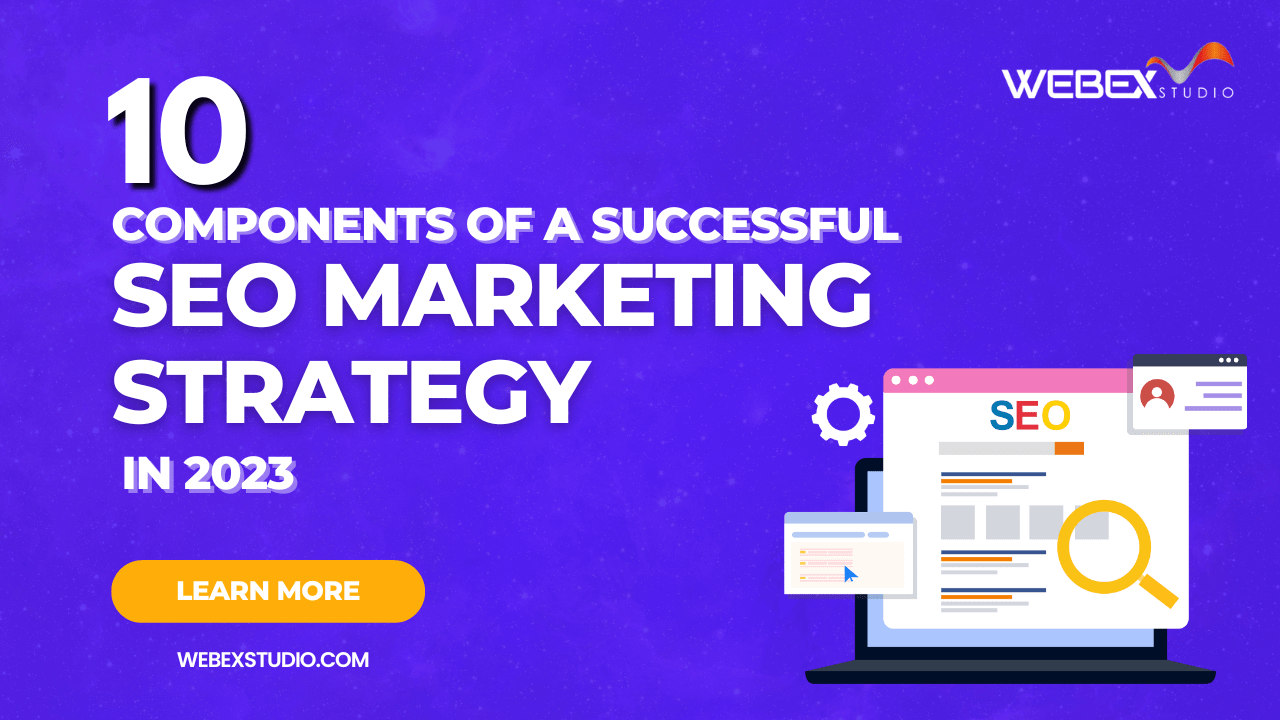Unlocking the Secrets to Boost Your Website’s Visibility and Ranking!
SEO, or Search Engine Optimization, is the backbone of online success. It’s the art and science of optimizing your website to rank higher in search engine results.
While off-page factors are essential, on-page SEO plays a crucial role in determining your website’s visibility.
In this comprehensive guide, we’ll explore the 12 important on-page SEO factors you should know to help you elevate your website’s ranking and attract organic traffic. So, let’s dive in!
Introduction to On-page Search Engine Optimisation
Before we delve into the specifics of on-page SEO factors, let’s understand the concept and why it matters. On-page SEO refers to all the elements on your website that you can control and modify to improve search engine rankings. This includes optimizing content, meta tags, images, URLs, and other aspects. By focusing on these factors, you can provide a seamless user experience, boost your website’s visibility, and increase organic traffic.
-
High-Quality and Engaging Content
Content is king, and it remains the most critical on-page SEO factor. LSI keywords, or Latent Semantic Indexing, play a significant role in this aspect. LSI keywords are contextually related to your primary keyword and provide search engines with a deeper understanding of your content. By using LSI keywords naturally, you can enhance the relevance of your content and improve its chances of ranking higher.
-
Optimized Title Tags
Title tags are HTML elements that define the title of a web page. Including your target keyword in the title tag helps search engines understand the page’s subject matter. Keep your title tags concise, unique, and relevant to the content on the page. This helps improve click-through rates and promotes better user engagement.
-
Meta Descriptions that Attract Clicks
Meta descriptions provide a brief summary of the web page’s content and appear below the title tag in search engine results. Utilize the meta description to entice users to click on your link. Make it engaging, and informative, and include the primary keyword for better visibility in search results.
-
User-Friendly URLs
Optimize your URLs to make them more user-friendly and search engine-friendly. Use descriptive words and include the primary keyword when appropriate. Short, clean URLs are easier to read and share, enhancing the overall user experience.
-
Mobile-Friendly Design
In the era of smartphones, a mobile-friendly website is no longer optional but necessary. Responsive design ensures that your website adapts to different screen sizes, providing a seamless experience across all devices. Google prioritizes mobile-friendly websites in its rankings, making this factor crucial for SEO success.
-
Fast Page Loading Speed
Website speed is a critical ranking factor. A slow-loading website can lead to higher bounce rates and reduced user satisfaction. Optimize your website’s loading speed by compressing images, leveraging browser caching, and using efficient coding practices.
-
Structured Data Markup
Structured data, also known as schema markup, helps search engines better understand your content’s context. Implementing schema markup can lead to rich snippets, which are visually appealing and more likely to attract clicks from users.
-
Keyword Optimization in Content
While creating content, strategically incorporate your target keyword and LSI keywords naturally. Avoid keyword stuffing, as it can harm your website’s ranking. Instead, focus on providing valuable and informative content that resonates with your audience.
-
Optimized Images
Images are essential for engaging your audience, but they can also impact your website’s loading speed if not optimized. Compress images without compromising quality, add alt text with relevant keywords, and use descriptive file names for better SEO performance.
-
Internal Linking Structure
A strong internal linking structure enhances website navigation and helps search engines crawl and index your pages efficiently. Link relevant pages together using descriptive anchor text to improve user experience and SEO.
-
Secure Website (HTTPS)
Suppose you are in a website, buying your favourite product and your payment details got hacked by cybercriminals. That is the last thing anybody would want. This is why, website security is crucial for user trust and SEO rankings. Switch to HTTPS to ensure secure communication between your website and users. HTTPS is now a ranking factor, and having an SSL certificate will boost your website’s credibility.
-
Social Media Integration
In an era where an estimated 4.9 billion people use social media across the world, social media signals can indirectly influence your website’s SEO. Integrate social sharing buttons on your content to encourage users to share your posts, thus increasing visibility and potential backlinks.
Conclusion
Mastering on-page SEO is crucial to enhancing your website’s visibility, attracting organic traffic, and improving your search engine rankings. By focusing on high-quality content, optimized title tags, meta descriptions, user-friendly URLs, and other important factors, you can create an SEO powerhouse that attracts and retains visitors. Remember to adapt your strategies to keep up with evolving search engine algorithms and user preferences, and you’ll find yourself ahead of the competition in no time.
 +91 861 772 4646
+91 861 772 4646  +1 (312) 219 2444
+1 (312) 219 2444 
